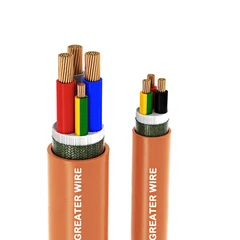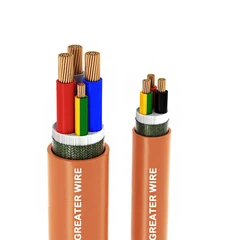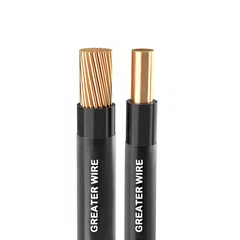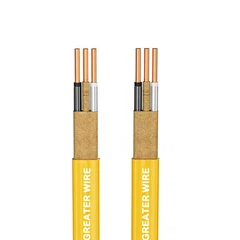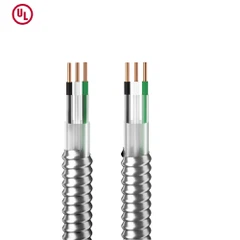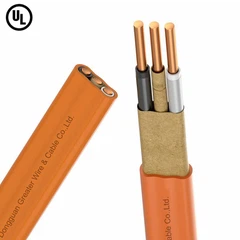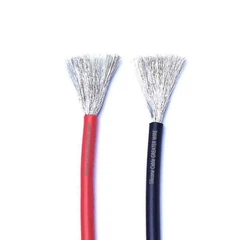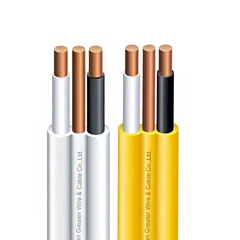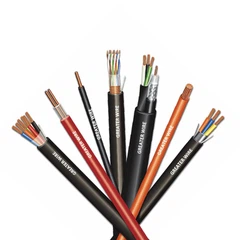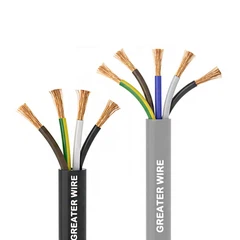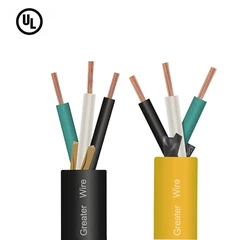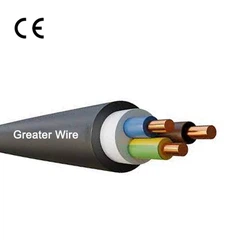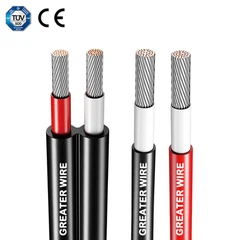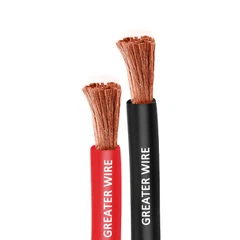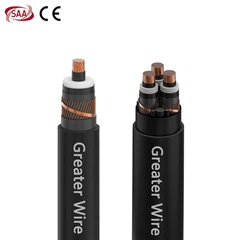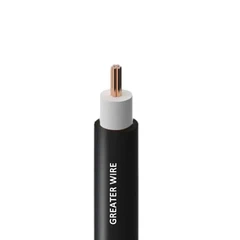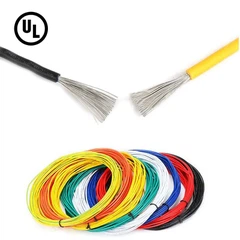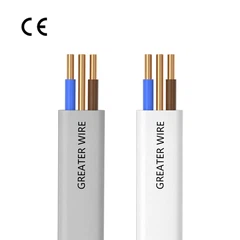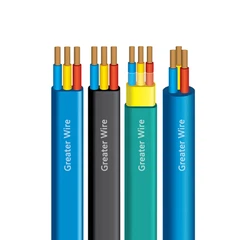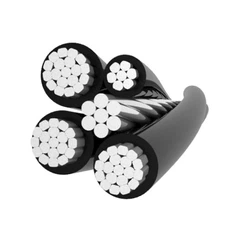In today's rapidly advancing electrical and electronics industry, selecting the right wire is not merely a matter of cost-it is a matter of safety, efficiency, and long-term reliability. Among the various options available, Teflon wire, also known as PTFE wire, stands out for its exceptional thermal resistance, chemical stability, and electrical insulation performance. Engineers, designers, and procurement specialists often ask: "At what temperature does Teflon wire break down?" Understanding the thermal limits of Teflon wire, its failure mechanisms, and practical applications is essential to ensuring safe and effective operation in demanding environments.
What is Teflon Wire and Why It Is Heat-Resistant
Teflon wire consists of a finely stranded copper conductor coated with polytetrafluoroethylene (PTFE) insulation. PTFE is a fluoropolymer renowned for its high thermal stability, excellent chemical resistance, and outstanding dielectric properties. Unlike standard PVC or rubber insulation, which softens, degrades, or loses insulation capability at elevated temperatures, PTFE maintains its physical and electrical properties under continuous heat.
The molecular structure of PTFE gives it a high degree of thermal resilience. Its carbon-fluorine bonds are among the strongest in organic chemistry, making it exceptionally resistant to thermal degradation and chemical attack. This structural robustness allows Teflon wire to function reliably in environments where other wires would fail, such as industrial ovens, chemical plants, aerospace electronics, and automotive engine compartments. Additionally, PTFE remains flexible even at high temperatures, allowing for complex routing without cracking or peeling-a critical factor for dynamic installations.

Thermal Breakdown Temperature and Consequences of Overheating
The thermal performance of Teflon wire is one of its most important attributes. It is crucial to distinguish between long-term continuous operating temperatures and short-term temperature spikes:
- Continuous Operating Temperature: Teflon wire can safely operate at up to 200°C continuously, ensuring insulation integrity and stable electrical performance.
- Short-Term Temperature Resistance: The wire can tolerate brief exposures up to 260°C without immediate failure, making it suitable for applications where transient heat surges may occur.
Exceeding these temperature limits, however, can lead to serious consequences. When PTFE insulation is exposed to excessive heat:
- Insulation Degradation: The PTFE may soften or crack, compromising the dielectric strength and leading to short circuits.
- Electrical Hazards: Increased conductor resistance may cause overheating and sparks, creating fire hazards in critical systems.
- Mechanical Failures: Repeated thermal cycling beyond limits can reduce flexibility and weaken the conductor, potentially resulting in breaks or malfunctions.
- System Malfunctions: In sensitive applications, such as aerospace avionics or industrial control systems, wire failure can lead to operational downtime or catastrophic equipment failure.
Understanding these limits is vital for engineers and safety managers seeking to ensure that their electrical systems remain robust under high-temperature conditions.
High-Temperature Applications of Teflon Wire
The high-temperature performance of Teflon wire opens doors to a wide range of applications where conventional wires would be inadequate. These include:
- Aerospace and Aviation: PTFE-insulated wires are widely used in avionics and aircraft systems where both high temperatures and extreme reliability are critical.
- Automotive Industry: Engine compartments, hybrid vehicle systems, and sensors often require Teflon wires that resist heat, vibration, and chemical exposure.
- Industrial Machinery: High-current machinery, ovens, and heating systems depend on PTFE wires for long-term, stable performance.
- Chemical Plants and Laboratories: PTFE wires resist corrosion from solvents, acids, and other chemicals, making them ideal for instrumentation and monitoring systems in aggressive environments.
The flexibility and durability of Teflon wire also make it ideal for applications requiring tight routing, frequent bending, or exposure to vibration, ensuring long-term reliability.
How to Select the Right Teflon Wire
Choosing the correct Teflon wire requires evaluating several key factors to ensure safety, reliability, and efficiency:
1.Operating Temperature: Determine both the maximum continuous and transient temperatures in your system. Always select a wire that exceeds the expected temperature to maintain a margin of safety.
2.Environmental Exposure: Consider exposure to chemicals, oils, or abrasive conditions. PTFE insulation provides excellent chemical resistance, but other factors such as UV exposure may require additional protective measures.
3.Voltage and Current Requirements: Select the appropriate conductor gauge and insulation thickness to match the system's electrical load while avoiding excessive voltage drop or overheating.
4.Flexibility and Routing Needs: For complex installations, choose fine-stranded PTFE wire to allow easy bending and installation in tight spaces without damaging insulation.
5.Certification and Compliance: Verify that the wire meets UL, CSA, or other relevant international standards for safety and reliability.
By carefully considering these factors, engineers can ensure that their Teflon wire performs reliably even in extreme environments, minimizing risks and enhancing operational efficiency.
Why Choose Dongguan Greater Wire & Cable Co., Ltd.
At Dongguan Greater Wire & Cable Co., Ltd., we specialize in high-performance Teflon (PTFE) wires suitable for industrial, automotive, aerospace, and electronics applications worldwide. With over 10 years of export experience, we have established a reputation for delivering UL-certified, flexible, and durable wires that meet the highest international standards.
Our 50,000-square-meter production facility is equipped with advanced machinery for conductor stranding, PTFE insulation extrusion, and rigorous quality testing. We offer customized Teflon wire solutions, including various gauges, insulation thicknesses, colors, and lengths, allowing clients to adapt wiring for even the most demanding high-temperature environments. By choosing our Teflon wire, customers gain high-temperature resistance, chemical stability, and long-term reliability, supported by our professional team committed to quality, innovation, and excellent service.
Dongguan Greater Wire & Cable Co., Ltd.
Tel/WhatsApp/Wechat: +86 135 1078 4550 / +86 136 6257 9592
Email: manager01@greaterwire.com

